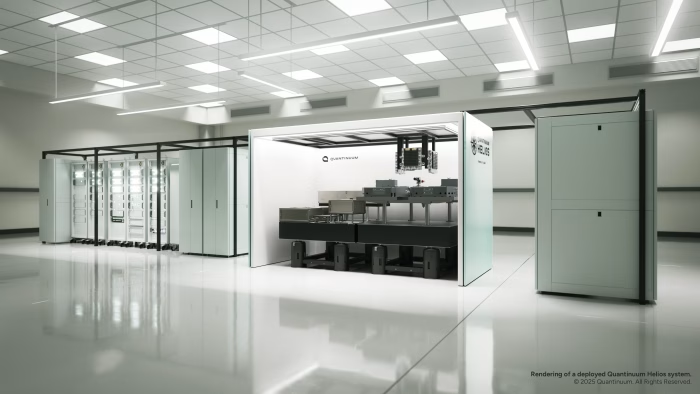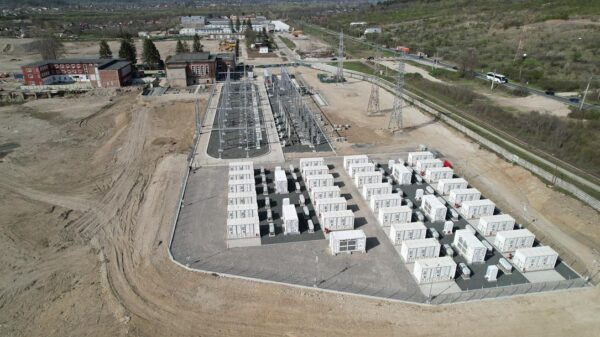Quantum computer company, Quantinuum launched Helios, the world’s most accurate general-purpose quantum computer, marking a major step toward commercial quantum adoption.
Announced on Thursday, the new system, blends quantum and classical computing, allowing developers to program both simultaneously in a way similar to standard computing environments. The company said Helios is now available through its cloud platform and as an on-premise installation.
Quantinuum said Helios delivers the highest fidelity of any commercial system available. In quantum computing, fidelity measures how accurately the system performs calculations—the higher the fidelity, the lower the error rate. Helios reportedly achieves a two-qubit gate fidelity of 99.921 per cent and a one-qubit fidelity of 99.9975 per cent. It also features real-time error correction, a key challenge in scaling quantum systems.
Company President and CEO Dr. Rajeeb Hazra said the launch signals a new era in computing. He noted that Helios gives enterprises access to a highly accurate quantum computer that can drive real-world impact, from pharmaceuticals to financial modeling. Furthermore, Hazra described it as a shift in how industries will innovate, emphasizing its role in transforming materials research, chemistry, and data analysis.
Helios operates using a new Python-based programming language called Guppy, which allows developers to merge classical and quantum functions into one program. This capability could make quantum computing more accessible to traditional developers. Quantinuum said Guppy enables hybrid computing at a level not previously possible.
The system also has applications in generative artificial intelligence (GenAI). Quantinuum said Helios can enhance GenAI models with quantum-generated data, improving performance in areas such as material design and quantum chemistry.
Read more: Core Scientific votes down merger with AI cloud firm CoreWeave
Read more: Canada set to introduce stablecoin framework soon
Quantinuum has multiple lucrative collaborations in play
To accelerate these developments, the company is expanding its partnership with NVIDIA (NASDAQ: NVDA). The collaboration will integrate NVIDIA’s GB200 system with Helios via NVQLink, combining quantum performance with NVIDIA’s accelerated computing architecture.
Furthermore, Quantinuum said it will use NVIDIA’s CUDA-Q platform with Guppy to run real-time error correction and hybrid workloads. The move will support what the company calls GenQAI, an emerging field that merges quantum data generation with AI model training.
Several global companies are already working with Helios. Amgen (NASDAQ: AMGN) is exploring hybrid quantum–machine learning to advance biologics research. BMW Group (ETR: BMW) is using the system to develop sustainable materials for fuel cell catalysts. JPMorgan Chase (NYSE: JPM) is studying its potential for financial analytics, while SoftBank Corp. (TYO: 9434) is researching next-generation materials for batteries and solar technology. AI startup BlueQubit is also using Helios for image recognition in real-world driving data.
Additionally, Quantinuum signed a strategic partnership with Singapore’s National Quantum Office and National Quantum Computing Hub. The deal gives Singapore access to Helios to advance research in biology, finance, and materials science. To support the agreement, the company plans to open a new R&D and operations centre in the country.
To expand its ecosystem, Quantinuum also announced Q-Net, a user group for feedback and collaboration, and a startup partner program that will let developers build third-party applications on Helios.
.













